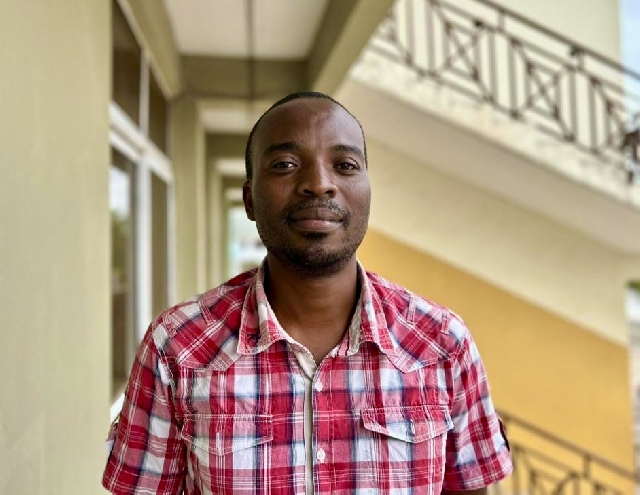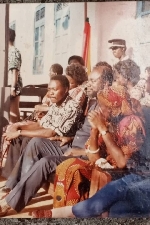The tragedy of watching: The Bystander Effect and our failing humanity
 Samuel Obeng Appah
Samuel Obeng Appah
During my university days, one of the most striking concepts I encountered in a Psychology course was the Bystander Effect — a social psychological phenomenon that explains why individuals are less likely to help a victim when other people are present. The theory suggests that when several people witness an emergency, the sense of responsibility becomes diffused among them. Each person assumes someone else will act and as a result, often no one does.
The Bystander Effect was first brought to public attention in 1964 after the horrific rape and murder of Kitty Genovese in New York. Reports claimed that dozens of people saw or heard her being attacked, yet none called the police until it was far too late. Though later investigations revealed fewer direct witnesses than initially reported, the story shocked the world and became a catalyst for psychological research into human indifference and moral paralysis in moments that demand courage.
Unfortunately, decades later and continents away, the same phenomenon continues to haunt us — this time in Ghana. Recently, the nation was shaken by the horrifying case of Samuel Armah, a 49-year-old fisherman from Mumford near Apam in the Central Region, who sexually assaulted a 13-year-old girl. The most chilling part of this crime was not only Armah’s brutality, but the role of those who stood by and watched.
In a disturbing video that circulated widely on social media, Armah was heard accusing the girl of stealing GH¢800 and demanding GH¢200 every hour as “payment.” The young victim, terrified and pleading for mercy, begged him to stop so she could search for the missing money. Instead, he continued his assault. What made this incident even more appalling was the behaviour of the bystanders — some of whom were seen recording the act, jeering, or urging him on, while others simply looked on in silence.
The footage sparked nationwide outrage, and rightfully so. The Cape Coast Circuit Court has since sentenced Armah to 10 years’ imprisonment with hard labour, a ruling many saw as justice served. But is it really justice?
For me, justice remains incomplete until those bystanders — the ones who chose to record instead of intervene — are also held accountable, at least morally, for their complicity through inaction. Their failure to act exposes the deep erosion of empathy in our society. The idea that one can stand by, watching a child suffer, without lifting a finger, is a grim reflection of how numb we have become to one another’s pain.
We now live in an age where the camera has replaced compassion. Instead of helping, people rush to capture and upload tragedies for clicks, likes and fleeting online validation. Technology, which was meant to connect us, has instead amplified our moral disconnection. Every viral video of violence, every trending hashtag about abuse, represents not only the cruelty of perpetrators but also the apathy of spectators.
Research in psychology and sociology shows that the Bystander Effect thrives in the digital age. The presence of cameras and the lure of social media fame create what experts now call “digital voyeurism” — a state where individuals find it easier to record than to react. Whether it’s a person collapsing in the street, a woman being assaulted, or a child being bullied, too often, the instinct to document overrides the moral duty to intervene.
The young girl in Mumford will carry the trauma of that night for a lifetime. Her body, mind, and spirit have been violated not just by one man’s depravity but by the collective silence and inaction of those around her. Her wounds may heal, but the betrayal of her community will leave deeper scars.
We must confront an uncomfortable truth: indifference is a form of violence. When we choose not to act, when we rationalise our silence, we become enablers of the very cruelty we condemn. Every society that turns a blind eye to suffering loses a piece of its soul.
The call to “be your brother’s keeper” — a moral and spiritual principle found in both scripture and tradition — must be more than a slogan. It should be a daily practice. It means stepping in when someone is in danger, speaking up when something is wrong, and refusing to let fear or apathy silence our conscience. It means recognising that every act of compassion, however small, can restore humanity’s fading light.
So, the next time you see someone in distress and your first impulse is to reach for your phone, pause. Ask yourself: What if that were my child, my sister, my friend? Imagine yourself in the place of that 13-year-old girl — frightened, crying for help while the world watches through a lens.
If that image doesn’t move you to act, then perhaps the real tragedy isn’t just what happened to her, but what has happened to us.
Until we rediscover our capacity for empathy and courage, we will remain bystanders — not just to crimes, but to the slow death of our shared humanity.
The writer, Samuel Obeng Appah refuses to be just a bystander.
Source: Samuel Obeng Appah
Trending Features

British-Ghanaian lawyer Bianca Akweley Clinton marks 20 years at the Bar
19:02
The death of critical thinking and the rise of collective stupidity as an existential threat
08:32
Cybersecurity and Constitutional Order: Why ILAPI calls for redress before Ghana’s Cybersecurity (Amendment) Bill becomes law
23:32
Cedi at 60: What you need to know about Ghana’s legal tender
15:04
From shells to screens: Experience 60 years of the Ghana cedi in augmented reality
10:38
Hair, discipline, and identity: The debate over SHS haircut rules in Ghana
10:07
Tribute to Nana Konadu Agyeman-Rawlings
13:07
Leveraging Analytics to Optimise Ghana’s Energy Grid
12:29
Ending child marriage — Beyond hashtags and promises
11:42
Breaking the silence: How social media is transforming the fight against sexual and domestic violence
10:04



